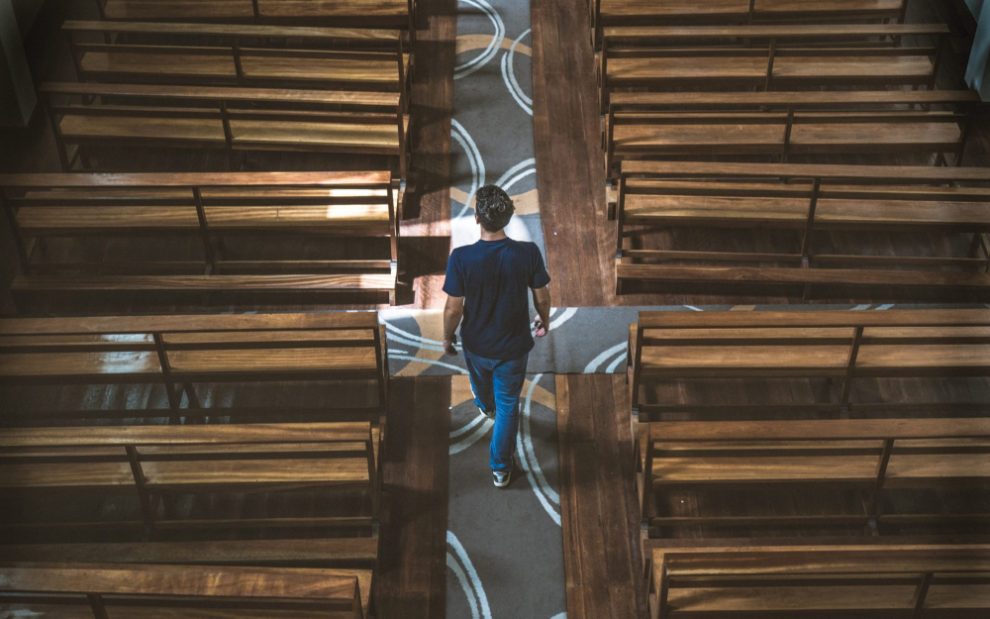Few people know this, but I was not quite raised Catholic. Like most Mexicans at the time, I was born into a Roman Catholic family, but by the time I was 7 or 8 years old, one of my parents identified as religiously unaffiliated. We would now call that a “none”; at the time it was highly unusual. However, as Mexicans, it was practically impossible to separate our cultural Catholicism from our religious affiliation; we still celebrated some religious holidays, and we even went to Mass once in a while. It wasn’t until age 17 that I became a practicing Catholic of my own accord after I found loving community in a Catholic youth group.
Since the 1990s, there has been a steady increase in the number of people who identify as religiously unaffiliated, or as “nones.” In Catholic circles, this is usually seen in a negative light, but I’d like to offer a different perspective: The rise in “nones” is really a call for all Catholics to live a more authentic faith rooted in the Jesus of the gospels.
Why would anyone reject belonging to a loving community? Why would anyone separate themselves from a loving God? Why would anyone reject the faith of their parents, a faith that teaches them to love the marginalized and vulnerable? The answer is simple: Most nones’ experience of Catholicism is the opposite of a loving community united by a loving God where people are taught to love.
For far too long, the focus of some of the most prominent Catholic and Protestant Christian voices has been on winning culture wars, on defending the church while stopping any line of questioning, and on policing or enforcing certain parts of doctrine that are exclusionary to different marginalized groups. Many lay and ordained leaders have also believed these characteristics to be the markers of what it means to be a real Catholic.
More and more Catholics and former Catholics, especially younger generations, are starting to question these priorities. In my experience, most religiously unaffiliated folks are simply critical thinkers who have been told there is no space for questioning in the church, so they choose to leave. To most nones, affiliating with a religion means being a blind follower, so they choose not to affiliate. However, nones are often spiritual people in search of a more authentic way of life. Many nones still appreciate some aspects of Catholicism as well.
These critical thinkers are often at odds with the church’s teachings on birth control, divorce, same-sex relationships, celibacy, the idea of a punishing or controlling God, and the lack of ordained female leadership. Many former Catholics also cite the sex abuse scandal and the inability of the church to protect the most vulnerable as common reasons to become unaffiliated.
I believe what these critical thinkers are doing is, in reality, questioning the authenticity of our faith. Maya Angelou said, “People will forget what you said, people will forget what you did, but people will never forget how you made them feel.” A community of faith that spends more of its resources making different groups of people feel excluded is not a faith that lives up to the standard of love and inclusion, the standard of Jesus.
By disregarding the nones, we are missing out on a golden opportunity to develop and teach abilities that are essential for the development of a mature faith: the abilities to question, to discern, and to follow our conscience.
For the nones, prepackaged answers are no longer enough. Our way of doing catechesis and our way of doing church must evolve. For the nones, relationship comes first. Loving relationship and community is the only way forward.
God bless the nones. May God give us the wisdom to live up to the highest standard of our faith.
This article also appears in the July 2023 issue of U.S. Catholic (Vol. 88, No. 7, page 9). Click here to subscribe to the magazine.
Image: Unsplash/Danique Tersmette















Add comment